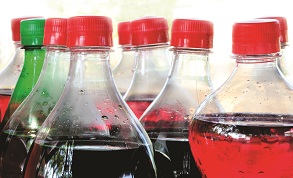News / Stevens ramps up action on unhealthy food
Hospital food retailers face a total ban on the sale of sugary drinks if they do not reduce sales to 10% or less of their total drinks sales in 2017/18.

The measure, which a number of retailers have accepted and are working towards, builds on the 2017/19 CQUIN scheme that incentivises hospitals to ensure healthier food and drink is sold on their sites.
The 2017/19 CQUIN indicator 1b on healthy food for staff, visitors and patients includes a target of 60% of sweets and confectionery on sale with fewer than 250 calories, with the same percentage of sandwiches and other pre-packed meals containing no more than 400 calories.
NHS England said progress was made on the 2016/17 CQUIN – for example, in cutting price promotions on sugary drinks and foods high in fat, sugar or salt, and ensuring healthy food options are available at all times, including for those working night shifts. The 2017/19 CQUIN calls for these improvements to be maintained. There are further targets for reductions in 2018/19.
However, the threat of a total ban goes beyond the CQUIN measures. NHS England said urgent action is needed. More money is spent each year on the treatment of obesity and diabetes than on the police, fire service and judicial system combined.
Chief executive Simon Stevens said: “A spoonful of sugar may help the medicine go down, but spoonfuls of added sugar day in, day out mean serious health problems.
‘It’s great that following discussion with NHS England, big-name retailers are agreeing to take decisive action, which helps send a powerful message to the public and NHS staff about the link between sugar and obesity, diabetes and tooth decay.’
NHS England believes limiting sugar in hospitals can make a significant impact. It said that the NHS has 1.3 million employees, with an estimated 700,000 believed to be overweight or obese. Not only does this potentially lead to greater sickness absence, but it also dents the service’s credibility when advising patients about their health.
And with more than one million patients going to NHS premises every day, the steps to limit sales of unhealthy food could reduce the damage caused by poor diets.
Related content
We are excited to bring you a fun packed Eastern Branch Conference in 2025 over three days.
This event is for those that will benefit from an overview of costing in the NHS or those new to costing and will cover why we cost and the processes.